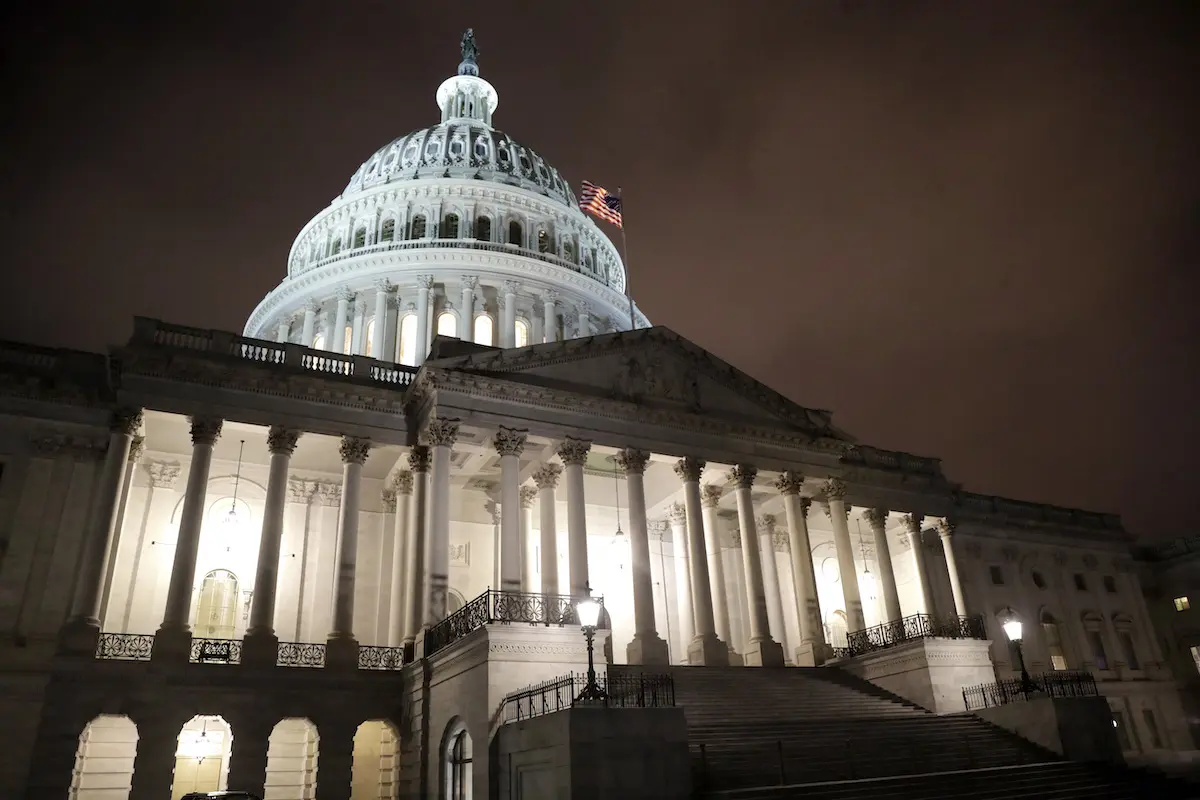

AP Photo/Julio Cortez
Words mean things, and in the debate around Puerto Rico’s political status, it is especially important to know what is being said.
For many mainland observers becoming increasingly aware of Puerto Rico’s territorial status, terms like “self-determination” tickle the ears. 3.2 million people living under an outdated, unjust political status? Of course, this merits resolution! And after 122 years of colonial rule, it makes sense for Puerto Rico to determine its own future.
Unfortunately, the term “self-determination” has been co-opted by political activists that seem to want nothing of the sort, using the term to mean “anything but statehood”—and that apparently includes prolonging Puerto Rico’s colonial status if it delays statehood.
H.R. 2070, the convincingly named “Puerto Rico Self-Determination Act,” sounds exactly like the solution Puerto Rico needs. Despite its name, however, H.R. 2070 provides little more than an attempt to silence the voice of Puerto Rican voters that have increasingly aligned behind statehood since 2012.
Puerto Ricans on the islands, of course, know this history well. Three separate votes —in 2012, 2017, and 2020— all resulted in “statehood” as the preference of choice. While the 2017 plebiscite was boycotted by opponents of statehood in a (quite successful) attempt to discredit the results, opinion polls showed that statehood was well on its way to victory. Questions of turnout and the sizes of the majorities in the 2012 and 2020 votes are subjects of debate, but elections are won by those who vote, and the fact of the matter is that statehood won both times.
At the core of this debate is what “self-determination” means. Congress has been reluctant to officially endorse a binding referendum on status, despite governments elected by Puerto Rico repeatedly petitioning it to endorse one. The well-worn refrain “We must let Puerto Rico decide” has had a sort of lullaby effect in the halls of Congress and the American electorate, implying that Puerto Rico has yet to hold a meaningful vote on status. The reality is that it has and that Puerto Ricans have consistently elected pro-statehood leaders territory-wide for the last decade, including current Resident Commissioner Jenniffer González-Colón, whose voice on this issue has curiously been ignored by congressional sponsors of H.R. 2070.
As Americans living on the mainland who want Puerto Rico to be able to determine its own future, our duty is not to support a convoluted “status convention” dreamed up by federal representatives from New York and New Jersey and supported by anti-statehood activists on the mainland. Our duty is to listen to and amplify the majority of Puerto Ricans on the islands that have shown they support statehood.
To be clear, if Puerto Rico showed consensus on independence, I would be the first in line at my member of Congress’ office asking her to honor that request, and I hope all Americans would do the same. The uncomfortable truth now is that Congress is allowing a minority of Puerto Rican voters —made up of supporters of a combination of independence and the status quo— to determine the future of the islands.
Even when analyzed in good faith, H.R. 2070 is not just convoluted in its process; it is ironic in its inception. Riddled with legal shortcomings, it is not a process that was “self-determined” by Puerto Rico’s government, elected by the voice of the Puerto Rican people.
The bill represents the imposition of a newly created, federally directed process that has not been foisted upon any other territory at any point in history. It ignores the voices of Puerto Rican voters, and favors more “education” on the status question, as if Puerto Ricans were unable to judge for themselves that their status within the United States framework is plainly unequal and unjust.
Congressional proponents of statehood that have introduced H.R. 1522, the “Puerto Rico Statehood Admission Act,” have stated their willingness to support a compromise bill that would sponsor a locally-held and binding vote on statehood, independence, and independence with free association. So far, supporters of the so-called “Self-Determination Act” have yet to take them up on the offer.
H.R. 2070 is little more than a convincingly named delay tactic. The biggest mistake Congressional leaders and all Americans can make is to let it be effective and prevent action during this Congress that allows Puerto Rico to at long last resolve its political status.
***
Matt Helder is a Washington State-based public policy professional and co-chair of the Puerto Rico Star Project. He is also a former U.S. Army officer and a veteran of the Afghanistan War.


